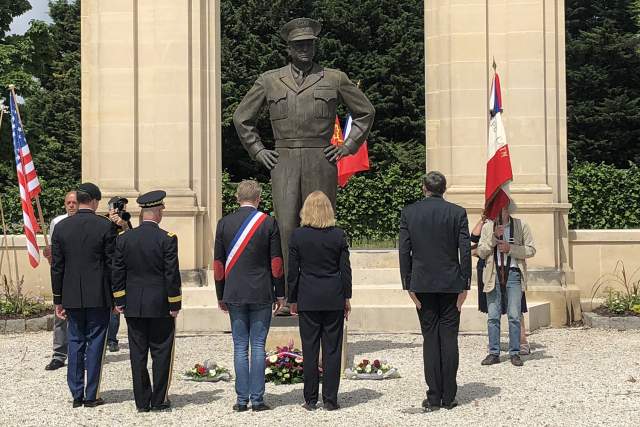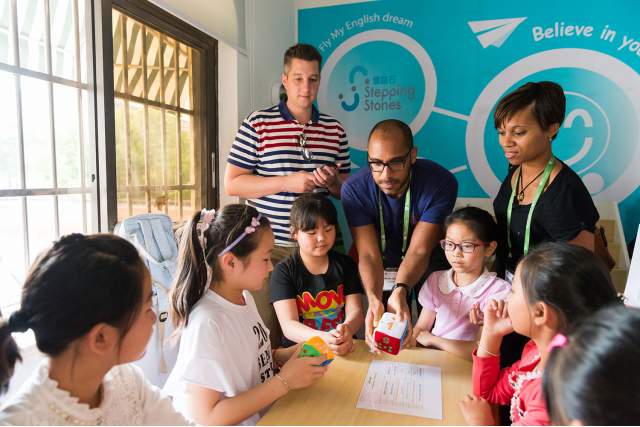Students at Tuck have plenty of unique opportunities to apply what they learn in the classroom to the real world.
Enter the First-Year Project (FYP): their first chance to draw on knowledge accumulated during the fall and winter terms to help a client solve a complex business problem. Some students even use the opportunity to test a business idea they have.
As the director of the FYP course, Becky Rice works closely with students, helping them choose clients and projects that will achieve their personal and professional goals, and stretch them outside their comfort zone. Here in an interview, she discusses the different opportunities available for students, from an overseas nonprofit in Nepal to a wool shoe company based in Silicon Valley.
How is an FYP structured?
The FYP is a core course, and student learning is our first objective. But projects are also real, timely business engagements that are important to clients—outcomes matter. The FYP staffs teams of five students who work throughout the 10-week term. Meeting weekly with their client, each team conducts research, applies rigorous analytics, and develops a recommendation for how to best solve the client’s business challenge. Every team has a faculty advisor who also meets with the students weekly, keeps them on track, and evaluates the work they’re doing. We have a great, very experienced group of faculty advisors, some of whom are dedicated Tuck alumni who’ve come back to Tuck and the Upper Valley.
Do you have Tuck alumni as clients?
We love working with our alumni—they are tremendous partners. About 50 percent of our projects are sponsored or recommended by Tuck alumni, and more than a third of our projects are for repeat clients. We view repeat clients as an important measure of success.
What types of projects have students worked on?
We work with a lot of consumer product companies, but we will work with clients from any industry or sector that has a project that matches the parameters of the course. And we partner with many local businesses in Vermont, New Hampshire, and Massachusetts. We have worked with well-known brands such as Darn Tough and Orvis. Patagonia and Allbirds are new companies we’re working with this year.
Can students go abroad for their FYP?
Yes, FYPGO is a track that allows students to fulfill both the FYP and Tuck’s global requirement. This year, we have students traveling to Rome to do work for Lime, an electric scooter company. We’ve sent students to Norway for Irving Oil, to France for the Normandy Institute, and we’ve placed students with the Himalayan Cataract Project in Nepal, where students were literally watching eye surgeries take place. We do a lot of work with nonprofits. FYPGO projects are very rich, humbling, and transformative experiences for students.
How can students design their own projects?
The entrepreneurial First-Year Project (eFYP) allows students to investigate their own business idea with the help of their team. Zippity is a good example of an eFYP that turned into a startup. All projects have to be vetted and approved, but any student can suggest a project. This year, we had a student extremely interested in media and entertainment, which isn’t a sector with a lot of recruiting representation, especially on campus. This student worked really hard to find a project that was right in line with what he hopes to be doing for his internship, and in his career after Tuck.
A lot of students have a gap they want to fill, and that’s why they’ve come to Tuck. The FYP can be used to help students build skills in an area where they want to gain more experience.
How does the FYP fit into Tuck’s curriculum?
The FYP is a spring term course, which means that students can apply what they’ve learned in the Tuck classroom to a real project working with a real client. The FYP also prepares students for the OnSite Global Consulting course, a second-year elective.
How can the FYP help students achieve their personal and professional goals?
It’s an opportunity for students to do something different that stretches them outside of their comfort zones. A lot of students have a gap they want to fill, and that’s why they’ve come to Tuck. This might mean going to a place that they wouldn’t normally go on their own, or simply taking the lead as the client contact. The FYP can be used to help students build skills in an area where they want to gain more experience. We’ve even seen companies keep students on and hire them as summer interns, based on their performance during the FYP.
What do you think makes the FYP a great learning experience?
Students take on real-world business challenges that are very meaningful for clients. These aren’t fabricated projects. Students learn how to collaborate and work together on small teams. The FYP is personal, connected, and transformative. And that’s what Tuck is all about.

